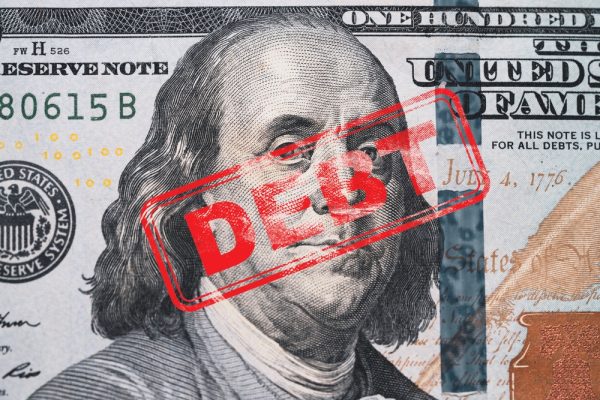
18.6 Million Americans Owe Tax Debt to the IRS
Tax debt is a critical financial issue that affects millions of Americans, posing significant challenges to both individuals and the federal government. Reports from 2023’s tax season showed that 18.6 million Americans owe tax debt to the IRS. Today, we’ll delve into the various facets of tax debt in the United States, exploring its prevalence, the average debt levels, the primary causes for its accrual, and the avenues available for resolution. By providing a comprehensive analysis, we aim to equip those affected with a deeper understanding of tax debt and the potential strategies for overcoming it.
The Scope of Tax Debt in America
18.6 Million Americans Owe Tax Debt
Recent estimates indicate that approximately 18.6 million Americans owe tax debt to the Internal Revenue Service (IRS). This number represents about 4.2% of the U.S. population, highlighting the widespread nature of the issue. Tax debt impacts a broad demographic, affecting individuals across various income levels and professions.
Total Tax Debt Owed
The total amount of tax debt owed by Americans is approximately $316 billion. This substantial figure reflects not only the accumulation of unpaid taxes but also penalties and interest applied over time. This can significantly increase the original debt amounts. These penalties are often preventable by avoiding mistakes as simple as responding to inquiries from the IRS in a timely fashion.
Average Debt Amount Per Individual
The average tax debt owed per individual is around $17,000. This average provides a snapshot of what many indebted taxpayers face. Individual debts can vary greatly depending on specific circumstances and the length of time the debt has been accruing. Since tax debt can vary substantially from one individual to another, it’s important to consider consulting with a qualified tax professional before attempting to address your own debt.
Causes of Tax Debt
Tax debt can accumulate for a variety of reasons, each adding layers of complexity to taxpayers’ financial lives. The following is a list of causes common causes:
Insufficient Withholding: Many employees find themselves with tax debt due to inadequate withholding from their wages. This often happens when individuals fail to update their W-4 forms in response to changes in their financial or personal lives.
Self-Employment Challenges: Self-employed individuals must estimate and pay their own quarterly taxes. Misestimations or missed payments can quickly result in significant tax debt. Unaddressed, the debt can snowball out of control, which can cause
Life Events: Major life changes such as marriage, divorce, or the death of a family member can lead to unexpected tax implications, often catching individuals off guard.
Noncompliance with Filing: Failing to file tax returns on time is another predominant cause of tax debt. Late filing can trigger penalties and interest that compound over time, exacerbating the debt.
Economic Downturns: Recessions or personal financial crises can disrupt one’s ability to pay taxes, leading to accrued debt during periods of economic hardship.
Resolving Tax Debt
Addressing tax debt is crucial for financial recovery and stability. The IRS offers several programs and solutions to help individuals manage and overcome their tax burdens:
IRS Payment Plans
The IRS provides structured payment plans to aid individuals in clearing their tax debts:
Short-Term Payment Plan: Available for individuals owing $100,000 or less in combined tax, penalties, and interest, this plan allows taxpayers to pay their debt within 180 days or less.
Long-Term Payment Plan (Installment Agreement): This option is suited for larger debts or for those who need more time to pay. It involves monthly payments over a period that can extend several years. This can be done electronically or by cheque, but keep in mind that, unlike the Short-Term Payment Plan, the Installment Agreement has fees involved.
Offer in Compromise (OIC)
An Offer in Compromise allows taxpayers to settle their tax debts for less than the full amount owed if they can prove that full payment would cause financial hardship. The IRS considers the taxpayer’s income, expenses, asset equity, and ability to pay when determining eligibility for an OIC.
Currently Not Collectible (CNC) Status
If taxpayers can demonstrate that paying their tax debt would prevent them from meeting basic living expenses, the IRS may place their account in Currently Not Collectible status, which halts collection activities until the taxpayer’s financial situation improves.
Why Hiring an Attorney Matters
Hiring an attorney to manage your tax debt can be a highly effective strategy. A qualified lawyer can offer specialized knowledge in tax law, providing crucial guidance through complex regulations and helping you negotiate with tax authorities. They can also assist in crafting a feasible repayment plan, potentially reducing the amount owed or simplifying the payment process. If you’re seeking professional assistance to tackle your tax debt issues, consider visiting TaxDebtLawyer.net. Their team of experienced attorneys specializes in resolving tax debt problems, ensuring that you get expert advice tailored to your unique financial situation.
What You’ve Learned
Understanding the complexities of tax debt is essential for any American facing this challenge. With comprehensive knowledge of how tax debt accumulates and the solutions available, taxpayers can better navigate their situations to restore financial equilibrium. This exploration not only aids individuals in managing their tax debt but also contributes to broader economic stability by reducing the overall tax debt burden in the country.
Free Tax Case Review
If you are struggling with tax debt or have received a letter from the IRS complete the form below.IRS Audit
You received an audit notice from the IRS
Tax Debt Relief
You owe the IRS money and are looking for relief options
Wage Garnishment
The IRS is taking part of your wages to pay off your debt
Tax Lien
The IRS put a legal claim on your property
IRS Property Seizure
The IRS is going to take your property to pay down or pay off your tax debt
Penalty Abatement
You want to request to remove or reduce penalties assessed by IRS
Innocent Spouse Relief
Relief from joint tax debt caused by your spouse or former spouse
Tax Debt FAQ
Common facts, questions and answers about tax debt and tax debt reilef
Tax Debt Lawyer
A tax debt lawyer can help you with your tax debt problems





